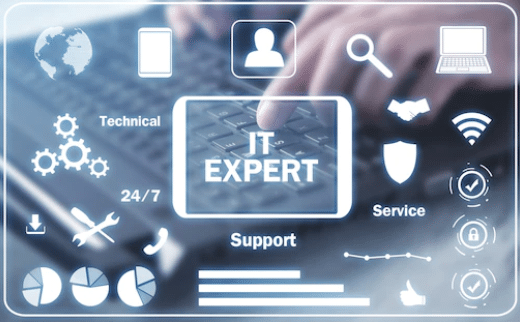Innovating Information Technology Services: Upcoming Trends You Need to Know
This landscape of managed IT services is transforming swiftly, propelled by progress in technology and the evolving needs of organizations. As businesses increasingly depend on digital solutions for their functions, the need for efficient and reliable IT services is at an historic high. Businesses are seeking for ways to harness the capabilities of cutting-edge technologies while ensuring their systems stay secure and operational. This transition is not just about keeping abreast with tech trends; it is about embracing a preventive approach to IT management that can facilitate growth and agility.
In this context, recognizing emerging trends in managed IT services becomes crucial. Organizations must manage the intricacies of cloud computing, artificial intelligence, and cybersecurity, all while maintaining the essential support for their IT frameworks. The ability to predict and adjust to these shifts will not only enhance operational efficiency but also provide a competitive advantage. As we gaze ahead, it is important for organizations to stay aware about the developments that can reshape their IT service strategies and determine the outcome of their digital transformation efforts.
A Emergence of Cloud Technology
That increase of cloud computing is revolutionizing the world of managed IT services. Organizations are progressively shifting their activities to the cloud, motivated by the demand for increased flexibility, scalability, and cost-effectiveness. Such a transition allows businesses to decrease their reliance on conventional on-premises infrastructure while utilizing cloud technologies for data storage, computational resources, and applications. As a consequence, supervised IT service providers are modifying their offerings to support these cloud-centric methods, allowing clients to enhance their cloud investments.
With the arrival of multiple cloud services, businesses today have access to a broad range of offerings customized to satisfy their individual needs. Administered IT support encompass cloud movement, upkeep, and enhancement, allowing companies to dedicate on their core capabilities. Additionally, the incorporation of cloud technology facilitates for enhanced collaboration and access to information from any place, fostering a remote work environment that has transformed into crucial in the current work market.
As additional organizations embrace cloud technology, the significance of data security becomes more and more clear. Supervised IT services are changing to include strong security protocols that protect sensitive data within the cloud environment. Service providers are implementing sophisticated security protocols, such as cryptographic techniques, MFA, and continuous monitoring, making sure that businesses can safely operate in the cloud while minimizing risks of information leaks and cyber threats.
Artificial Intelligence and Automated Processes in IT Services
The combination of AI and automation is revolutionizing the field of managed IT services. These technologies optimize operations, enhance productivity, and minimize errors, allowing IT teams to dedicate themselves to long-term initiatives rather than day-to-day tasks. By utilizing AI, organizations can promptly evaluate vast amounts of data, identify patterns, and make informed decisions, resulting in better service delivery and client satisfaction.
Automation are now crucial in IT service management, facilitating processes such as system monitoring, incident management, and regular upkeep. This transition allows for preventive management of IT infrastructures, where potential issues can be identified and fixed before they escalate into significant problems. As a result, organizations can achieve greater uptime and reliability, which is essential in the current fast-paced digital world.
As we move forward, the importance of AI and automated processes in managed IT services will develop. With developments in machine learning and NLP, IT service providers will offer even more advanced solutions, such as automated support systems and intelligent chatbots. These developments will not only boost operational efficiency but also provide clients with a more customized experience, further solidifying the importance of AI and automated processes in the next generation of IT services.
Cybersecurity Issues On the Horizon
As businesses increasingly depend on outsourced IT solutions, the cyber threat environment continues to evolve, presenting significant security issues. The rise of complex online attacks, such as malware and phishing schemes, underscores the need for robust security measures. Managed IT service providers must stay ahead to these dangers by adopting cutting-edge security solutions, continuous monitoring, and cybersecurity education to reduce vulnerabilities.
Another concern lies in the regulatory environment, which is becoming more intricate due to the implementation of stricter regulations around data protection. Businesses are expected to safeguard sensitive information, and non-compliance can lead to hefty fines and loss of reputation. Managed IT services must adapt to these changes by ensuring that their cybersecurity strategies align with industry regulations, ultimately protecting their clients and building trust.
Finally, the rapid adoption of cloud computing brings with it a array of security challenges. While managed IT services offer advantages such as scalability and cost-efficiency, the joint responsibility paradigm leaves opportunity for vulnerabilities. Parried managed IT must strengthen their security frameworks to address possible flaws in cloud systems, ensuring data integrity and privacy while enabling customers to leverage the full benefits of cloud computing.
